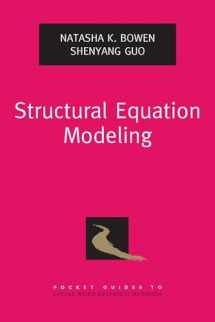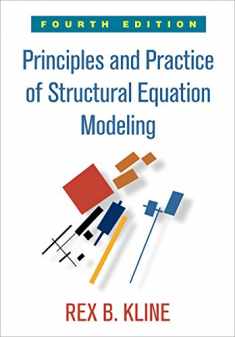
Structural Equation Modeling (Pocket Guide to Social Work Research Methods)
Book details
Summary
Description
Structural Equation Modeling (Sem) has long been used in social work research, but the writing on the topic is typically fragmented and highly technical. This pocket guide fills a major gap in the literature by providing social work researchers and doctoral students with an accessible synthesis. The authors demonstrate two Sem programs with distinct user interfaces and capabilities (Amos and Mplus) with enough specificity that readers can conduct their own analyses without consulting additional resources. Examples from social work literature highlight best practices for the specification, estimation, interpretation, and modification of structural equation models. Unlike most sources on Sem, this book provides clear guidelines on how to evaluate Sem output and how to proceed when model fit is not acceptable.
Oftentimes, confirmatory factor analysis and general structure modeling are the most flexible, powerful, and appropriate choices for social work data. Richly illustrated with figures, equations, matrices, and tables, this pocket guide empowers social workers with a set of defensible analysis strategies that allows for competent, confident use of Sem.


We would LOVE it if you could help us and other readers by reviewing the book
Book review




